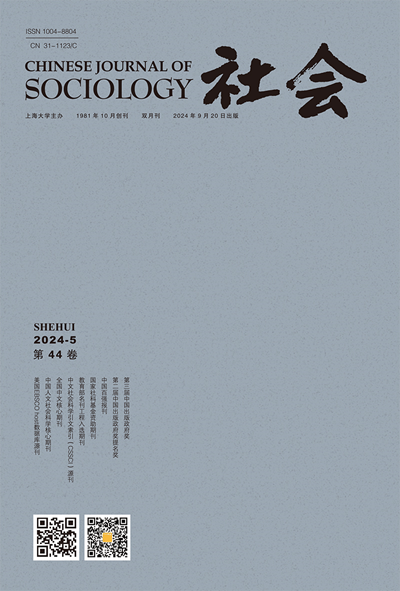Three faces of the online leftists: An exploratory study based on case observations and big-data analysis
IF 1.8
4区 社会学
Q2 SOCIOLOGY
引用次数: 4
Abstract
Left-leaning social thoughts are not a unitary and coherent theoretical system, and leftists can be divided into divergent groups. Based on inductive qualitative observations, this article proposes a theoretical typology of two dimensions of theoretical resources and position orientations to describe left-wing social thoughts communicated in online space. Empirically, we used a mixed approach, an integration of case observations and big-data analyses of Weibo tweets, to investigate three types of left-leaning social thoughts. The identified left-leaning social thoughts include state-centered leftism, populist leftism, and liberal leftism, which are consistent with the proposed theoretical typology. State-centered leftism features strong support of the state and the current regime and a negative attitude toward the West, populist leftism is characterized by unequivocal affirmation of the revolutionary legacy and support for disadvantaged grassroots, and liberal leftism harbors a grassroots position and a decided affirmation of individual rights. In addition, we used supervised machine learning and social network analysis techniques to identify online communities that harbor the afore-mentioned left-leaning social thoughts and analyzed the interaction patterns within and across communities as well as the evolutions of community structures. We found that during the study period of 2012–2014, the liberal leftists gradually declined and the corresponding communities dissolved; the interactions between populist leftists and state-centered leftists intensified, and the ideational cleavage between these two camps increased the online confrontations. This article demonstrates that the mixed method approach of integrating traditional methods with big-data analytics has enormous potential in the sub-discipline of digital sociology.网络左派的三张面孔——基于案例观察和大数据分析的探索性研究
左倾社会思潮不是一个统一的、连贯的理论体系,左派可以分为不同的群体。基于归纳性的定性观察,本文提出了一种从理论资源和立场取向两个维度来描述网络空间中传播的左翼社会思想的理论类型。实证上,我们采用案例观察和微博推文大数据分析相结合的混合方法,调查了三种类型的左倾社会思想。已确定的左倾社会思想包括以国家为中心的左派、民粹主义左派和自由主义左派,这与所提出的理论类型一致。以国家为中心的左派具有对国家和现政权的强烈支持和对西方的消极态度,民粹主义左派具有对革命遗产的明确肯定和对弱势基层的支持,自由主义左派具有基层立场和对个人权利的坚定肯定。此外,我们使用监督机器学习和社交网络分析技术来识别包含上述左倾社会思想的在线社区,并分析社区内部和社区之间的互动模式以及社区结构的演变。我们发现,在2012-2014年的研究期间,自由左派逐渐衰落,相应的社区解散;民粹主义左派和以国家为中心的左派之间的互动加剧,这两个阵营之间的思想分歧增加了网络对抗。本文表明,将传统方法与大数据分析相结合的混合方法在数字社会学子学科中具有巨大的潜力。
本文章由计算机程序翻译,如有差异,请以英文原文为准。
求助全文
约1分钟内获得全文
求助全文
来源期刊

社会
Social Sciences-Social Sciences (all)
CiteScore
1.70
自引率
0.00%
发文量
6799
期刊介绍:
The Chinese Journal of Sociology is a peer reviewed, international journal with the following standards: 1. The purpose of the Journal is to publish (in the English language) articles, reviews and scholarly comment which have been judged worthy of publication by appropriate specialists and accepted by the University on studies relating to sociology. 2. The Journal will be international in the sense that it will seek, wherever possible, to publish material from authors with an international reputation and articles that are of interest to an international audience. 3. In pursuit of the above the journal shall: (i) draw on and include high quality work from the international community . The Journal shall include work representing the major areas of interest in sociology. (ii) avoid bias in favour of the interests of particular schools or directions of research or particular political or narrow disciplinary objectives to the exclusion of others; (iii) ensure that articles are written in a terminology and style which makes them intelligible, not merely within the context of a particular discipline or abstract mode, but across the domain of relevant disciplines.
 求助内容:
求助内容: 应助结果提醒方式:
应助结果提醒方式:


